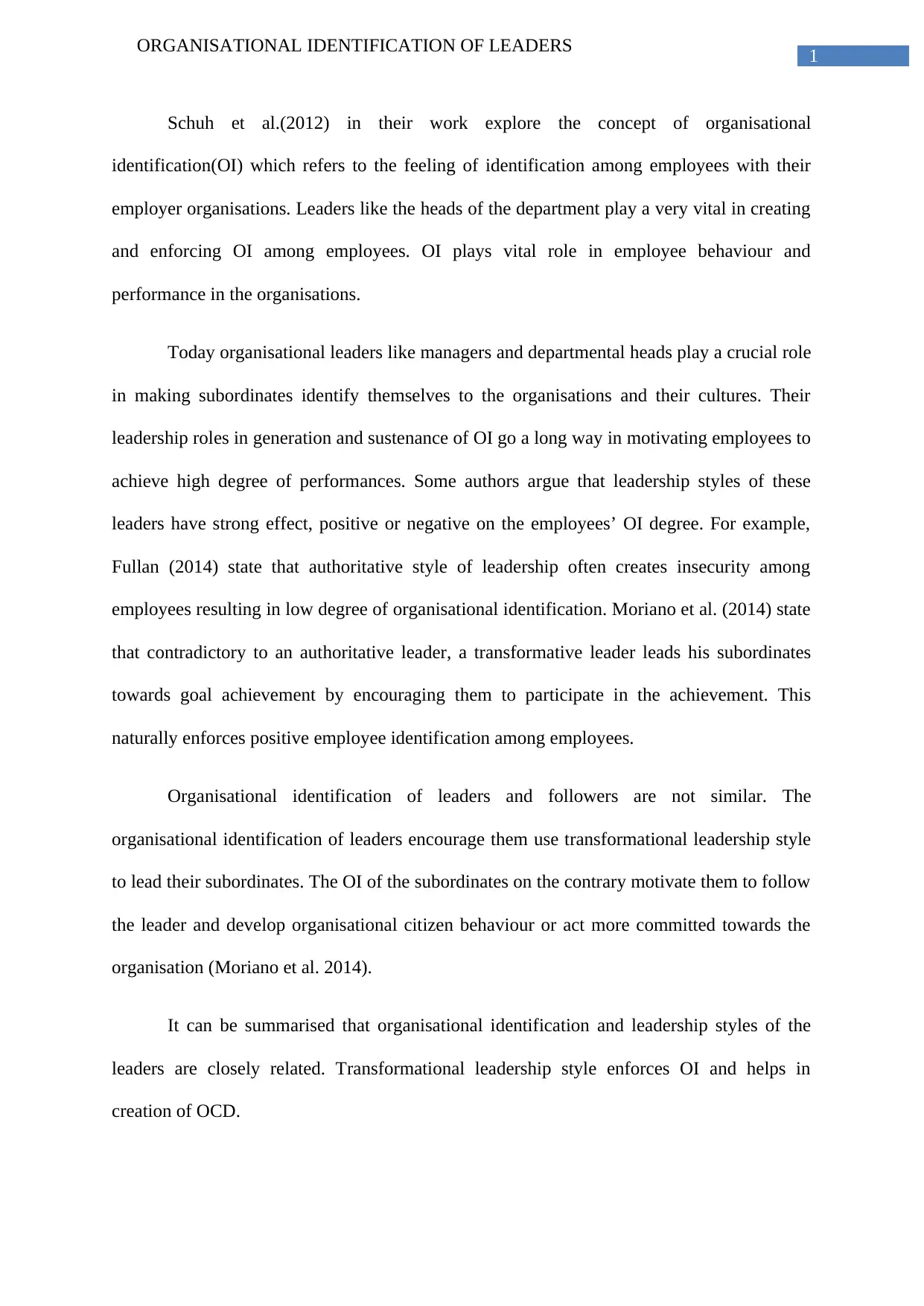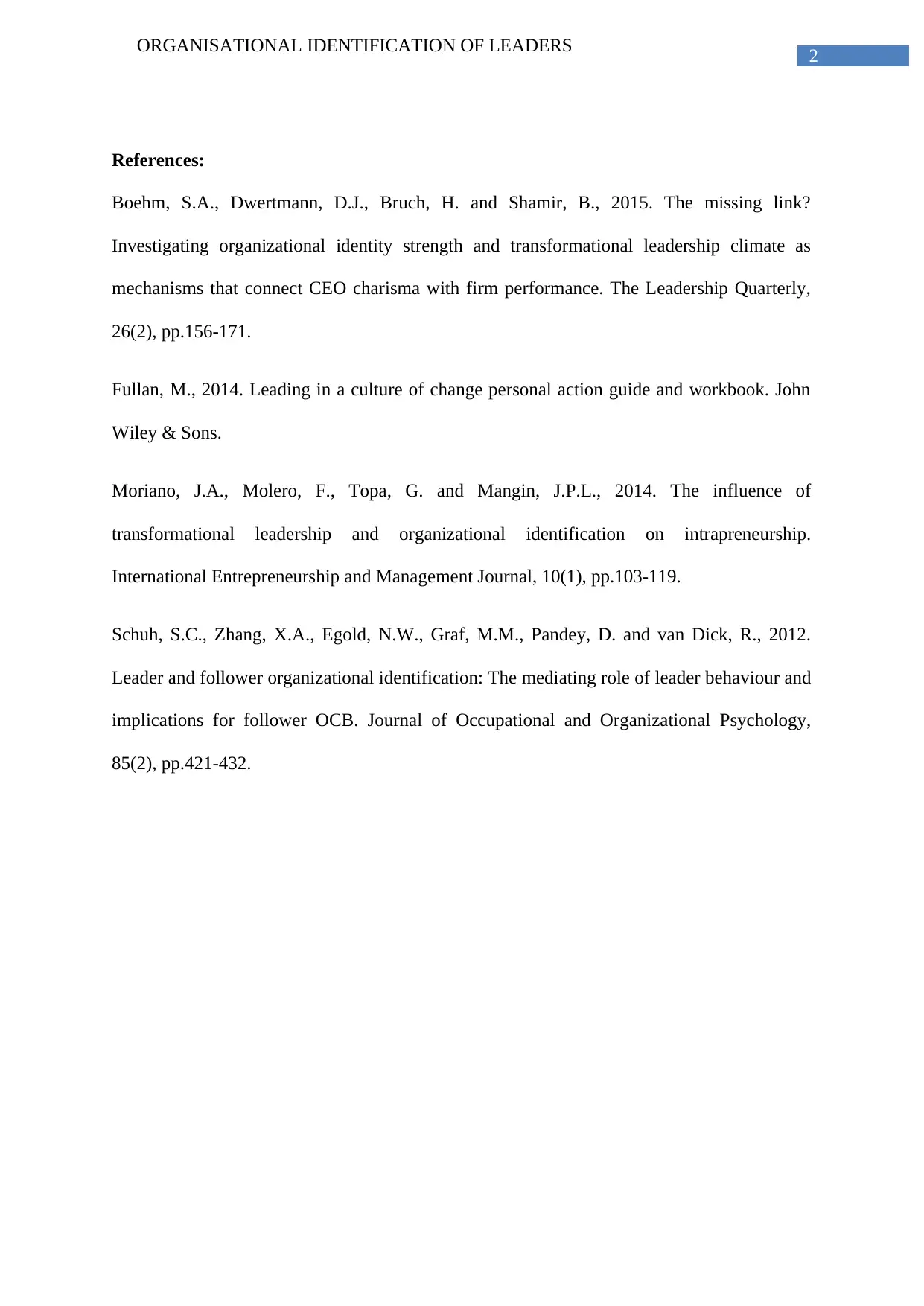Organizational Identification of Leaders: A Detailed Analysis
VerifiedAdded on 2020/04/21
|3
|498
|287
Report
AI Summary
This report examines the crucial relationship between leadership styles and organizational identification (OI). It highlights how leaders, particularly those in managerial positions, influence employees' sense of belonging and commitment to the organization. The report discusses the impact of different leadership approaches, such as transformational leadership, on fostering positive OI and organizational citizenship behavior. The study references key authors and their works to explain how leadership behaviors can shape employee attitudes, motivations, and performance. It emphasizes the role of leaders in shaping organizational culture and creating a sense of belonging among employees, thus contributing to improved employee engagement and overall organizational success. The report further explains how the transformational leadership style promotes a strong sense of OI, ultimately driving employees towards a higher degree of commitment and performance within the organization.
1 out of 3









![[object Object]](/_next/static/media/star-bottom.7253800d.svg)